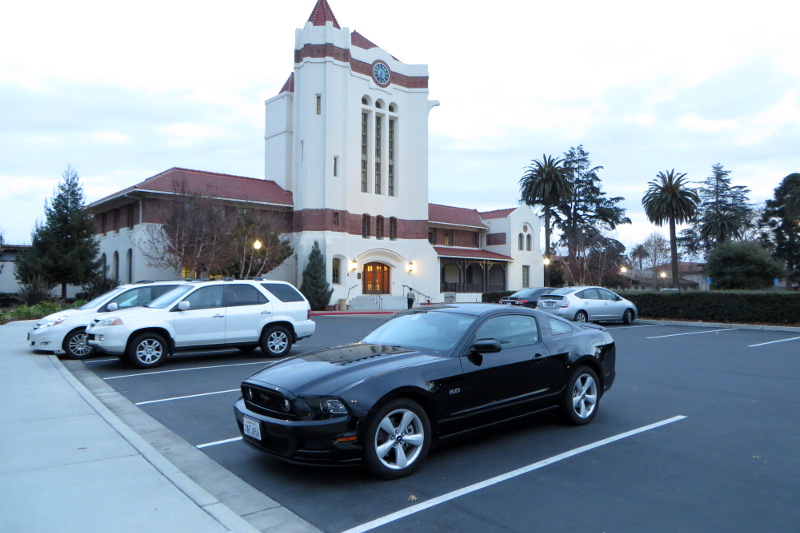It’s been a while since my car rental was upgraded to a horse (Mustang). This one is a real tease because it’s a proper Mustang with leather racing seats and a loud engine that seems to startle people in other vehicles. And, I’ve discovered that other muscle car drivers in the Bay Area seem to have a real problem with ego and an obsessive need be first. I’m sure there’s a whole study in psychology devoted to this.
With that in mind, the monument run for this particular instance of the Horse is rather apropos; it’s a trip to Agnews Developmental Center, historically known as The Great Asylum for the Insane.
The treatment of people with mental illness in San Francisco (and this little campus in particular) has a rather interesting history. In the 1800s, as San Francisco grew with the Gold Rush, so did the need for more jail cells for criminals and “any suspicious, insane or forlorn persons found strolling about the city at night.” To accommodate this need, in 1850 one Gold Rush ship, the Euphemia was converted into California’s first formal insane asylum.
This lasted until San Franciscans realized they needed to look for a real and more permanent solution. In 1876, a wealthy Santa Clara landholder, Abram Agnew, sold a piece of his land to the State of California and on this land, the California Hospital for the Chronic Insane was established (1885).
This wasn’t the first “permanent” mental hospital in California but after its opening, it became the largest. In 1888, the facility took in 75 patients from the Napa State Hospital and an additional 200 patients from the Stockton State Hospital. It thrived and grew and in 1897 changed its name to Agnews State Hospital.
Agnews continued to grow until 1906 when tragedy struck with the San Francisco Earthquake; 117 patients and staff were killed when the main building crumbled to the ground… this was the largest concentration of death related to the earthquake and contrary to popular belief, victims from the earthquake are not located in a single mass grave or in the Agnews Historic Cemetery.
The facility was rebuilt in 1911 (bigger, better) and could accommodate 1800 people. In 1932, a second 424-acre campus (known as the “East Campus” or “The Colony”) was built on Zanker Road. This was used by patients and staff to farm the land and provide food for the hospital. Agnews continued to grow for decades until the 1990s when the State made the decision to close the West Campus and sell the land; however, buying the property is not as simple as it seems. Agnews is on the National Register as a historical landmark; purchasing means preservation.
The West Campus is now owned by Sun Microsystems (Oracle) and is used as their corporate headquarters; they’ve invested over $10 million in the restoration and preservation of the buildings and surrounding land (they even re-homed burrowing owls that lived in the trees).
The East Campus’ fate is yet to be determined (as of 2014). Cisco has been slowly nibbling up the land for decades. The buildings look abandoned and neglected while a “For Sale” sign sits at the entrance.
